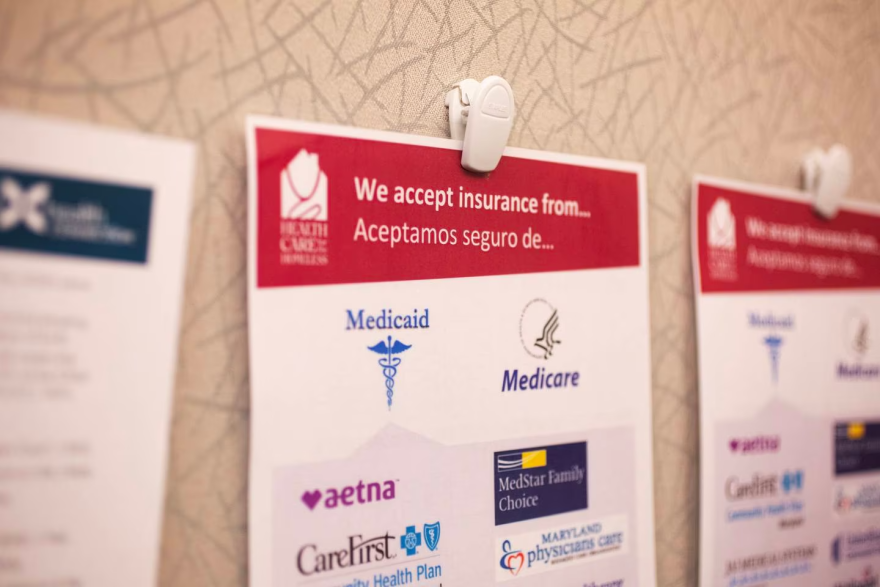More than a year ago, the Centers for Medicare and Medicaid Services approved new guidance to automatically enroll newly released incarcerated people into Medicaid.
The program was celebrated by harm reduction and healthcare advocates.
However, since the program’s inception there has been a slow roll out in the states.
“Unfortunately, there are more than a dozen states who still have pending waivers,” said Lee Storrow, the senior director of external affairs at Community Education Group (CEG), an organization that provides healthcare and education for underserved communities.
Maryland is one of those states still waiting for approval, and recently Marylanders may have noticed a truck outside Baltimore’s CMS office building lobbying the agency to expedite its process.
“We know this is a proven tool to save lives, and prevent overdose deaths,” Storrow said.
The digital billboards sat outside CMS and the Department of Health and Human Services building in D.C. for a week.
The banners thanked the departments for their work, but asked for them to hurry up their bureaucratic process as well.
“The 1115 waiver is really going to be helpful for folks struggling with substance use disorder, including opioid use disorder in particular. This is really urgent,” Storrow said.
A CMS spokesperson said that the agency welcomes the opportunity to partner with states through 1115 amendment waiver demonstrations.
“Because each application is unique, CMS performs a case-by-case review of each proposal to determine whether its stated objectives are aligned with those of Medicaid. CMS also considers whether proposed waiver and/or expenditure authorities are appropriate and consistent with federal policies,” the spokesperson said in a statement. “The complexity of one demonstration request today can be significantly more time consuming to review than multiple previous demonstration requests.”
CMS also stated that hiring freezes and flat budgets are slowing the process.
When CMS announced the program, it hailed it as a win for expanding healthcare.
“This guidance outlines a pathway to implement historic changes for individuals who are incarcerated and eligible for Medicaid,” said CMS Administrator Chiquita Brooks-LaSure. By improving care and coordination prior to release from the justice system, we can help build a bridge back to the community and enhance individual and collective public health and public safety outcomes.”
CMS said that there are high numbers of mental illness and other health issues in the penal system. The 1115 amendment program may be able to help those people reach the care they need faster.









